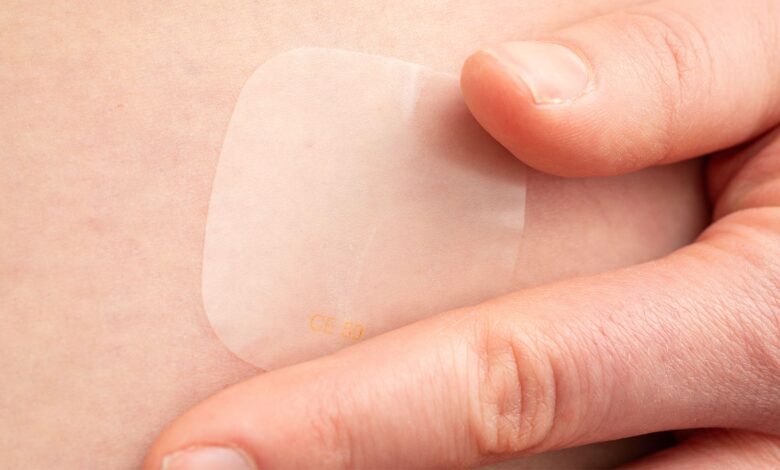Lancet Menopause Series Wants to Change How Society Views ‘The Change’

— Researchers advocate away from over-medicalizing menopause
by
Kristen Monaco, Senior Staff Writer, MedPage Today
March 5, 2024
Researchers warned against the “over-medicalization” of menopause in a four-paper series in The Lancet, and argued for a fresh approach that goes beyond the treatment of specific symptoms.
The series focused on four areas for changing how we view menopause — ranging from healthcare providers adopting an “empowerment model” to support women; optimizing health after early menopause; new insights into women’s mental health; and managing menopause after cancer.
“The misconception of menopause as always being a medical issue which consistently heralds a decline in physical and mental health should be challenged across the whole of society,” said lead author of the series Martha Hickey, MBChB, MD, of the Royal Women’s Hospital in Melbourne, Australia, in a statement.
“Many women live rewarding lives during and after menopause, contributing to work, family life, and the wider society. Changing the narrative to view menopause as part of healthy ageing may better empower women to navigate this life stage and reduce fear and trepidation amongst those who have yet to experience it,” Hickey added.
The Empowerment Model
In the first paper of the series, Hickey and co-authors advocated for a pivot away from medically treating the individual symptoms of menopause and instead taking a more holistic approach. “Rather than focusing on menopause as an endocrine deficiency, we propose an empowerment model that recognizes factors modifying the experience, in which the patient is an expert in their own condition and the healthcare worker supports the patient to become an equal and active partner in managing their own care,” the group wrote.
As part of shifting away from viewing menopause as a hormone deficiency disease, a large part of the paper argued against blanket use of hormone replacement therapy — now more commonly called menopausal hormone therapy (MHT) — and using a more individualized approach to managing symptoms. “Over-medicalization of menopause and promotion of MHT as a panacea is unhelpful,” according to an editorial featured in the series.
For tackling vasomotor symptoms, which affect up to 80% of menopausal women, clinicians can suggest lifestyle interventions, like cutting down on alcohol or smoking and improving sleep habits. Behavioral strategies like cognitive behavioral therapy (CBT) and hypnosis were also deemed effective non-pharmacological vasomotor treatments.
“CBT may also reduce stress and improve sleep and mood,” added co-author Myra Hunter, PhD, of King’s College London, in a statement. “Lifestyle changes addressing diet, smoking, and exercise may additionally benefit sleep and mood and improve long-term health. Some don’t wish to take menopause hormone treatment unless their symptoms are severe and prefer to use other approaches. Our series is all about increasing awareness of evidence-based options for women, so they can choose how they wish to navigate menopause, free from judgement and stigma.”
For those who need it, medical therapies like MHT are still an option, as well as gabapentin and oxybutynin, as recommended by organizations like the North American Menopause Society. The first-in-class hormone-free pill fezolinetant (Veozah) gained FDA approval last year, though the Institute for Clinical and Economic Review deemed it less effective than MHT for vasomotor symptoms.
“Information about these treatments, their benefits, risks, and comparative effectiveness should be made readily available to women seeking medication with the support of healthcare professionals,” co-author Andrea La Croix, PhD, of the University of California San Diego, advised in the press release. “MHT is the best-known medication and data suggests it’s slightly more effective than alternative medications for treating hot flashes and night sweats. However, no medication can reliably resolve all negative experiences during menopause and commercial interests have influenced how MHT is presented — overshadowing evidence-based alternative options.”
Dealing With Early Menopause
Though menopause typically starts around the age of 50, up to 12% of women globally start menopause between the ages of 40 to 44. Another 2% to 4% of women start menopause even earlier, prior to the age of 40, dubbed premature ovarian insufficiency.
Women going through early menopause and premature ovarian insufficiency may face broader health implications like a higher risk for fracture, cardiovascular events, and neurological conditions, explained Gita Mishra, PhD, of the University of Queensland in Brisbane, Australia, and colleagues. Consequently, the diagnosis of early menopause is key, but it’s not always straightforward and oftentimes it comes with a delayed diagnosis. One U.S. study found more than half of women with spontaneous premature ovarian insufficiency reported seeing three different clinicians, and it took over 5 years to get a diagnosis for a quarter of those women.
Because existing menopause clinical practice guidelines rarely address early menopause, Mishra’s group called for focused research into this topic to both improve the diagnostic time and find intervention options. They added that there’s “insufficient evidence” for current guidance advising MHT until the average age at menopause, so treatment for women with early menopause should be considered on a case-by-case basis.
Focus on Mental Health
“A paradigm shift is needed,” argued Lydia Brown, PhD, of the University of Melbourne, and colleagues, who found “no compelling evidence” that menopause increased the risk of anxiety, bipolar disorder, or psychosis. “Potential misattribution of psychological distress and psychiatric disorders to menopause could harm women by delaying accurate diagnosis and the initiation of effective psychotropic treatments, and by creating negative expectations for people approaching menopause,” they said.
In their review of 12 prospective studies, they did however find women going through menopause tended to be more vulnerable to depressive symptoms, though this was largely focused on women with previous major depressive disorder.
“The take-home message to women and their clinicians is that we shouldn’t assume that if someone has mental health symptoms during the menopause transition that those two things are related,” added co-author Hadine Joffe, MD, MSc, of the Connors Center for Women’s Health and Gender Biology at Brigham and Women’s Hospital in Boston, in the release. “We don’t want to invalidate the fact that some people will experience mental health symptoms during the menopause transition, but it’s not guaranteed. If you’ve never had major depression before, you’re extremely unlikely to have a first episode of clinical depression during the menopause transition.”
“We have a negative media image about menopause, but without looking at someone’s mental health prior to menopause, it’s very challenging to understand what might be biologically related to menopause as opposed to life stage or life trajectory,” said Joffe. “Clinicians need to think about what happened before, because depression might be coincident with menopause but unrelated.”
Besides prior depressive symptoms, other risk factors for depression during menopause included severe and prolonged vasomotor symptoms, chronic sleep problems, and life stressors.
As for treatment, the researchers said clinicians should manage depression during menopause as they would depression at any other life stage — with psychotherapy, antidepressants, and other psychiatric approaches. That being said, MHT is not approved for treating depression during menopause.
Menopause After Cancer
In the fourth paper of the series, Hickey and co-authors called for the multidisciplinary management of women going through menopause after cancer.
Because of chemotherapy, menopausal diagnosis of this patient group can be particularly tricky. Treatment also poses a challenge since MHT may be contradicted for some. In those cases where women also need treatment for bothersome vasomotor symptoms, they need to shift focus to non-hormonal and non-pharmacological treatments, though it’s important to keep in mind non-hormonal therapies won’t improve genitourinary symptoms or prevent fracture.
“Vaginal estrogen seems to be safe for most patients with cancer and growing evidence supports safety after breast cancer,” the researchers said. They added that CBT had the strongest evidence base as a non-pharmacological approach to reducing vasomotor symptoms after cancer.
-
![author['full_name']](https://clf1.medpagetoday.com/media/images/author/kristenMonaco_188.jpg)
Kristen Monaco is a senior staff writer, focusing on endocrinology, psychiatry, and nephrology news. Based out of the New York City office, she’s worked at the company since 2015.
Disclosures
Hickey, lead author of the series, reported funding from the Australian National Health and Medical Research Council and support from the U.K. National Institute for Health and Care Excellence.
Hunter has worked in collaboration with Rightsteps to develop CBT solutions for menopausal symptoms and is author of two books on CBT for menopausal symptoms.
La Croix has grant funding for research on menopause from the National Institute on Aging.
Joffe disclosed grant funding from the National Institutes of Health, Pfizer, and Merck; and consulting for Bayer, Merck, and Hello Therapeutics.
Mishra and Brown declared no interests.
Other co-authors reported relationships with industry.
Primary Source
The Lancet
Source Reference: Hickey M, et al “An empowerment model for managing menopause” Lancet 2024; DOI: 10.1016/ S0140-6736(23)02799-X.
Secondary Source
The Lancet
Source Reference: Mishra GD, et al “Optimising health after early menopause” Lancet 2024; DOI: 10.1016/ S0140-6736(23)02800-3.
Additional Source
The Lancet
Source Reference: Brown L, et al “Promoting good mental health over the menopause transition” Lancet 2024; DOI: 10.1016/ S0140-6736(23)02801-5.
Additional Source
The Lancet
Source Reference: Hickey M, et al “Managing menopause after cancer” Lancet 2024; DOI: 10.1016/ S0140-6736(23)02802-7.
Additional Source
The Lancet
Source Reference: The Lancet “Time for a balanced conversation about menopause” Lancet 2024; DOI: 10.1016/S0140-6736(24)00462-8.



